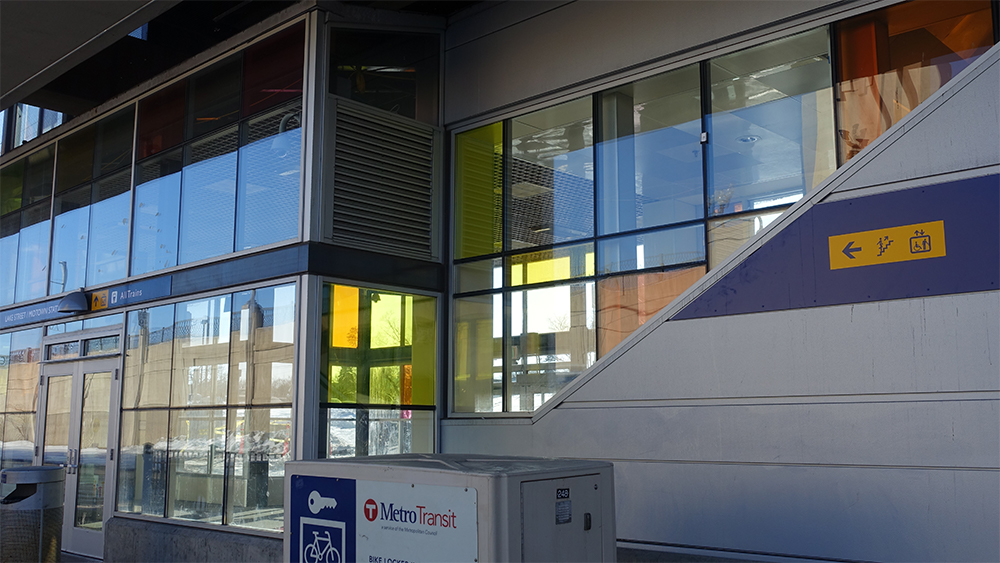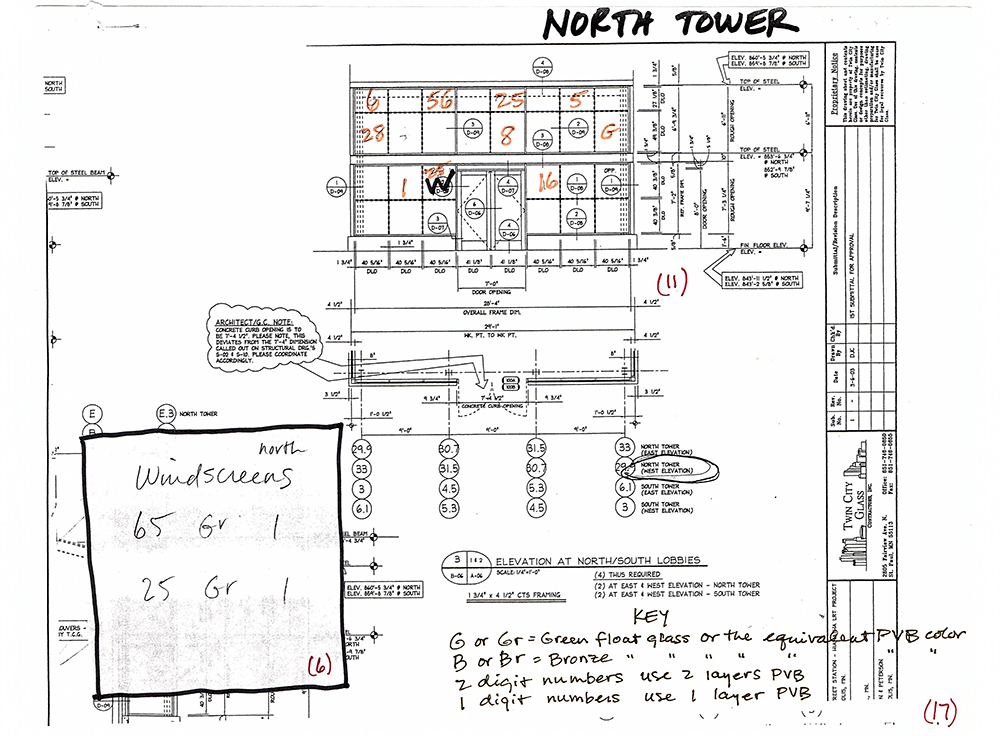Lake Street is a crossroads for many cultures that have come to Minnesota. The cool colored (blues and purples) glass panels of the north tower represent the cultures that have come from the cool northern climates. The warm colored (yellows, ambers and oranges) glass panels of the south tower represent the cultures from the warm equatorial areas and southern hemisphere. The word WONDER is present in mirror glass letters in the lower lobby of the north tower. The word WONDER is meant to be a command as well as noun. A viewer will notice that the N in WONDER is on the north wall of the tower, and like-wise, the E is on the east wall, and the W is on the west wall. Mirrored letters spelling Wonder also reference the memories of the Wonderland Amusement Park which was located nearby.

JoAnn Verburg is an American photographer who uses large format cameras to shoot life-size portraits, still life's and landscapes. Verburg’s images create narrative sequences that generate a state of prolonged experience; not a state of motion, but, rather, how we view images, as in mirroring the eye’s movement during the act of looking.
She made a name for herself in the late 1970s with “The Rephotographic Survey Project,” a collaborative exhibition and book that recreated more than 120 images of largely uninhabited Western landscapes in the 19th century. Using cameras, lenses and film that approximated the technology of their 19th-century predecessors, they waited for weather conditions that replicated the light in the original photographs, then rephotographed each place. The resulting then-and-now comparisons showed what the passage of time had done to those vistas. Surprisingly, what endured — the same trees, boulders and riverbeds — was often just as poignant as the changes to the landscape over time.
Verburg studied at Ohio Wesleyan University, earning her Bachelor’s of Arts in Sociology. She earned her Masters of Fine Art in Photography from the Rochester Institute of Photography, New York. Verburg moved to Minnesota in 1981 where she was an artist-in-residence at the Minneapolis College of Art and Design. She splits her time between St. Paul, Minnesota and Spoleto, Italy.
JoAnn Verburg's website

Heroes (Hole to China)

In the Light of the Doum
After 13 years, WONDER was inventoried to see how many of the original colored glass panels still existed and which needed to be recreated. To do this, the existing colored panels had to be compared to the original glass panel documents. It was discovered that 52 of the original glass panels had been broken and replaced with plain glass panels. Below are some of the images from this process.

Original concept drawing

Original glass panel specification sheet with hand-written notes about which colored panels should go where.

Adjusted panel drawing indicating color, panel size and which are missing (in red).